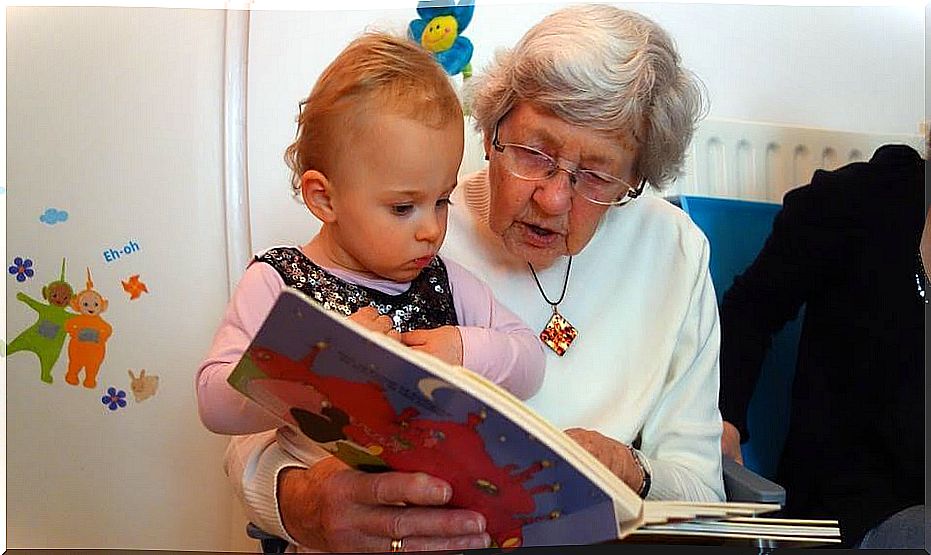When The Whole Family Wants To Take Part In Raising Your Child, What To Do?

That uncomfortable but very common moment when the whole family wants to intervene in the upbringing of your child, what to do? First, understand that the advice of parents, siblings, uncles and other people considered as family is not done with bad intentions.
On the contrary, in this type of unsolicited intervention, there is usually a great desire to contribute to the well-being of your child and your own, but there are limits, right? And the best thing is to make them clear as soon as possible to avoid that the family gets out of hand with that of “advising you” how to raise your child.
This bad time is very common especially in new parents. The stories begin with a “when my son was little and gave him that same symptom, it was such a disease” or “so, your cousin was just as naughty as a child” and the advice on what foods to give, what home remedies to apply, followed by a long list of etceteras that make us eat the coconut and want to shout ‘enough!’
What to do when the family wants to intervene in the upbringing of your child?
Set healthy boundaries
Clearly define the boundaries that separate the participation of grandparents, uncles, and siblings in parenting from those actions that represent abuse. Example: marking the hours of visits, calls and the routines and habits of the baby as aspects that only parents have to consider.
Talk to grandmothers, who tend to unintentionally push boundaries when they are very excited about the arrival of a new grandchild, and explain to them the parenting mode agreed upon with the couple and the medical recommendations given to the baby. Lovingly ask them to let them experiment, enjoy, fail and grow with the newborn and to be there when you, parents, request it.
Grant clear roles. Parents maintain the leading role in upbringing. It should be like that and not let another member of the family want to come and usurp that place.
This limits should be taken for granted very early in pregnancy and later birth because it often happens that when it is not defined, children when they are learning to speak begin to call their grandparents “mom” or “dad” and by their names. stack to parents. Situation with many implications and that creates great chaos that will affect family harmony over time.

Give generic information and not details
It is very helpful to keep certain aspects of parenting and partner agreements reserved for other members of the family. Giving generic information and not details allows the family not to interfere in private matters and decisions such as: religion in which the baby will be raised, school it will attend, its complementary feeding, medical care, etc.
It may be useful to ask yourself the question first about whether it is convenient and relevant for the family to know this information, whether it will provide solutions, useful advice or allow you to see the situation from another perspective. Yes to all these questions the answer is NO. So, keep it in reserve with your partner and your child.
Assertive and respectful communication
Communicates from the assertiveness and respect the decisions about the care and upbringing of the baby. Make it explicit when you want advice or an opinion and when you are only communicating a decision that is not subject to discussion. Example: travel with the baby, prohibition of food, application of medicines, relationships of the baby with other members of the family or close friends, removals.
Talk about the discomfort with your partner
If in-laws are being nosy, making decisions about your child without consulting you or your back, discuss them with your partner. Let him see where the disrespect is, consult his opinion and together come to a resolution in favor of the well-being of the child and a healthy family life.
Avoid assuming victim roles or manipulating your partner into making “us or them” decisions. On the contrary, together with the exposition of the problem, it provides solutions and alternatives. Take a proactive role that makes it clear that your interest is not to cause displeasure or separation.

Participation
In the first place, grandparents, uncles or siblings will not assume the role of “nosy” if you give them an active role from the beginning and their share of participation in the life of your child.
Let everyone know how important they are and ask them for advice when you see fit. That way they won’t feel left out or left behind. Jealousy will obviously arise, but let them know that each of them is relevant to raising your child and without them the task would be more difficult to carry out.









